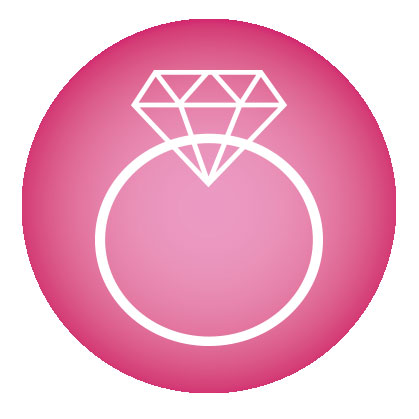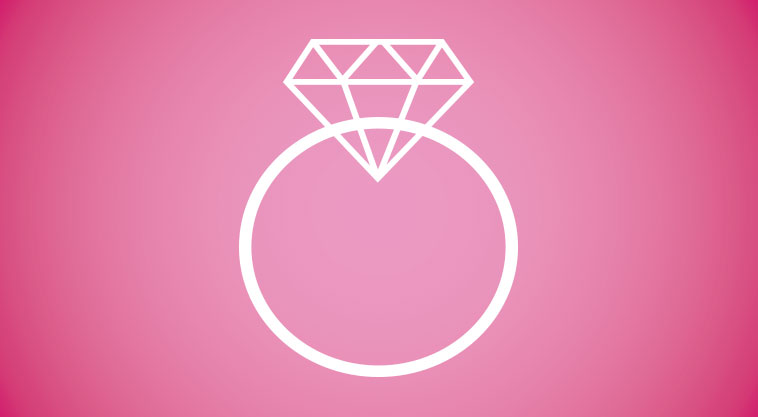I’ve Been Sober For Three Years. Should I Share My Story With My Dates?

Recovery is the road no one wants to travel — and the same one they say they’d never trade

I’m currently 23 years old and ready to start dating. When I was about 16, I had a very rough year in yeshivah and I began drinking. The details aren’t important, but basically by the time I was 18, I was a full-blown addict. My parents were brave and wise enough to recognize the problem and they sent me to a rehab facility where I began the process of recovery. I continue to see my therapist and attend meetings regularly. Although I did have some minor relapses, baruch Hashem, I’ve been sober for three years and, I’m actually studying for a degree in social work.
My question is this: How much of my story do I share and when? Does it make sense to tell shadchanim from the beginning so as to weed out people who wouldn’t consider me? And if I am fortunate enough to find someone who accepts me and my situation, how much should I share at that point? I’m so grateful to have my recovery tools, but honestly, it’s still really scary. Thank you so much.
Sober and Scared
Dear Sober,
Before we even get to your question, let me congratulate you on your three years of sobriety and on your quest for an emotionally healthy and spiritually rich life. Recovery is the road no one wants to travel — and the same one they say they’d never trade. My guess is that you’ve amassed tools for healthy living and a level of self-awareness that some people never obtain in a lifetime.
Let’s start with a disclaimer: Your question deserves an in-person conversation. Every situation has so many variables and the stakes are so high that it’s impossible to do justice to your question in this format, and I invite you to contact me directly. However, I will answer in general terms to invite awareness around this topic and hopefully my general response will be helpful on some level. Anyone in this situation should seek a rav who specializes in this field, as well as a 12-step sponsor who understand the dynamics and nuances of our community, and receive specific guidance for their individual circumstance.
The reality is that you have entered a dimension that’s not accessible to those on the other side. The other reality is that recovery doesn’t have a beginning and an end. As you well know, continued attendance at meetings and conversations with sponsors will be an important part of your life, possibly for the rest of your life. So even if you were able to keep this secret, what would it do to your progress?
It would be ideal if you could meet someone through the network of community, friends, and family whom you’ve met along the way. People who know you, respect you, and love you would be best positioned to introduce you to someone who could appreciate you. These people see the strength you possess and recognize that the painful stops on the way were necessary posts along the journey of your emerging self. You wouldn’t need to do all sorts of awkward explaining.
I’m gathering from your question that you are considering going back down the traditional shadchan road, and I understand that wish. Ask yourself some questions before you engage in those conversations. How has your life experience shaped you? Has it changed your perspective on life? Has it created new goals? New priorities?
Now apply those answers to marriage. What will you need in a wife to maintain and promote your growth? How can you convey that to a shadchan in a way that won’t scare them off? I suppose you could try to be vague and convey to shadchanim that you’ve engaged in self-growth over the past few years and are looking for someone who’d appreciate that and who has perhaps undergone her own metamorphosis.
I’d be surprised if they let you get away with that without pressing for more details, but you’re welcome to try. I’m skeptical about this route. We’ve baruch Hashem come a long way in our understanding of addiction, but unfortunately, the instinctive reaction is still to judge and to categorize.
What I hear in your question is a desire to “move on,” but your journey took you off the straight and narrow path. You can’t just jump back on. Please understand, I’m not saying you can’t have a normative life. Quite the contrary, as a result of your hard internal work, you’ll im yirtzeh Hashem have access to all the rich experiences of life and be fully present to experience them.
What I am saying is that your experiences have broadened you and exposed you to a new way of being that can’t be stuffed back into constricted ways of thinking. You need to ask yourself the hard question, “Why would I want to sublimate that part of myself?” When we accept ourselves in our entirety, embracing our whole self, we’re in a position to grow. When we deny or suppress integral parts of who we are, it comes out sideways or back to bite us.
You want a wife with whom you can be open and honest. It’s so painful and exhausting to maintain an ongoing façade, and it’s a serious block to true emotional intimacy. Love and accept yourself for who you are — the whole you. Build from that place, together with someone who values that.
As to your question about how much to share with a girl you’re dating and at what point, there’s no theoretical answer to that. That will have to be gauged as you come to it, hopefully in consultation with the guidance team mentioned above. They’ll help you find the balance between enough sharing so you have trust and authenticity, but not so much information that it will unnecessarily burden the relationship.
I apologize if this answer is far from what you were hoping to hear. I want you to know that I hear you. I’m not answering this from a place of missing your question. I’m asking you to reconsider if your true, authentic, recovering self will be better served by revisiting your vision of what’s truly important in the monumental decisions you will im yirtzeh Hashem be making in the coming years.
Wishing you strength and endless siyata d’Shmaya in your courageous journey.
Sara
Sara Eisemann, LMSW, ACSW, is a licensed social worker and a dating mentor. She lectures on topics related to relationships, personal development, authenticity, and growth. She welcomes questions, comments, feedback, and interaction at matchquest@mishpacha.com.
(Originally featured in Family First, Issue 719)
Oops! We could not locate your form.


Comments (1)